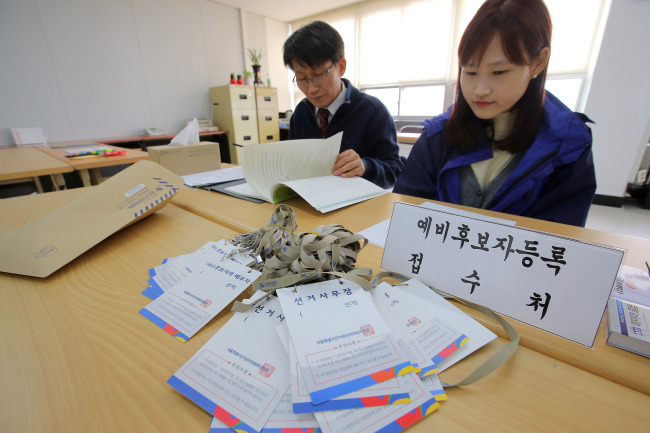South Korea’s state-run corporations recently jumpstarted the process of filling the leadership posts that have been vacated for several months, stocking speculation that the government has been delaying the process to keep time with the political schedule, including next year’s general election.
According to the Ministry of Trade, Industry and Energy, the nation’s four major state-funded energy companies — Korea National Oil Corp, Korea Midland Power Co., Korea South Power Co. and Korea East-West Power Co. began this month to recruit the candidates for new CEOs.
Korea Midland Power Co. has been running without a chairperson for six months, while KNOC did not have a CEO for four months, Korea South Power Co. for three months and Korea East-West Power Co. for the past month.
Most recently, Korea Electric Power Corporation, the nation’s top utility company, was expected to look for someone to replace current president Cho Hwan-eik whose term ended on Dec 16.
With the state companies accelerating the process for nominating their CEOs, industry observers speculated that the post would be filled with politicians who would be dropped from the political parties’ nomination for 2016 general elections.
“As far as I know, the government has told us to begin the process of nominating the CEOs. If we can’t find a suitable person, the position could be filled with retired ministers or politicians who were denied opportunities to run for the elections,” an official from an energy company told the Korea Herald, wishing to remain anonymous.
 |
| Officails receive submission from prospective candidates for the 2016 general elections. Yonhap |
Though the committee at each company selects the final candidates for the leadership post, it has been an open secret that the government has a huge say in the process because the president appoints the nominees in accordance with the recommendation of the Industry Minister.
The leadership positions for the state companies have often been held by the retired senior government officials and politicians from the ruling party. The post was considered a reward for the high-profile figures who were forced to end their careers in the government and politics.
For instance, Korea District Heating Corp.’s CEO Kim Sung-Hoi was a former lawmaker who had served between 2008 and 2012. Kim became the president of the heating company in 2013 after the ruling party rejected his candidacy for the 2012 general election.
The barrier between public enterprises and political circles has been low, with many incumbent CEOs throwing their hats into the ring for the April 13 general election.
To name two, Korea Airports Corporation President Kim Seok-ki and Incheon International Airport Corp. President Park Wan-su last week announced their resignations to run in the elections. Korea Broadcast Advertising Group President Koak Sung-moon, a former lawmaker, is also contemplating running.
“I am afraid frequent leadership changes will compromise the companies’ competitiveness. We have to ensure the elected chiefs fulfill their legal terms” an anonymous retired government official who had worked for state-companies told the Korea Herald. The CEO of state companies’ legal term is three years.
According to the study of 177 state companies released by civic group Citizens United for better Society in May, 72 companies has suffered from an average of 56 months vacancy for their leadership during the Park Geun-hye administration from 2013 to 2014.
By Yeo Jun-suk (jasonyeo@heraldcorp.com)

